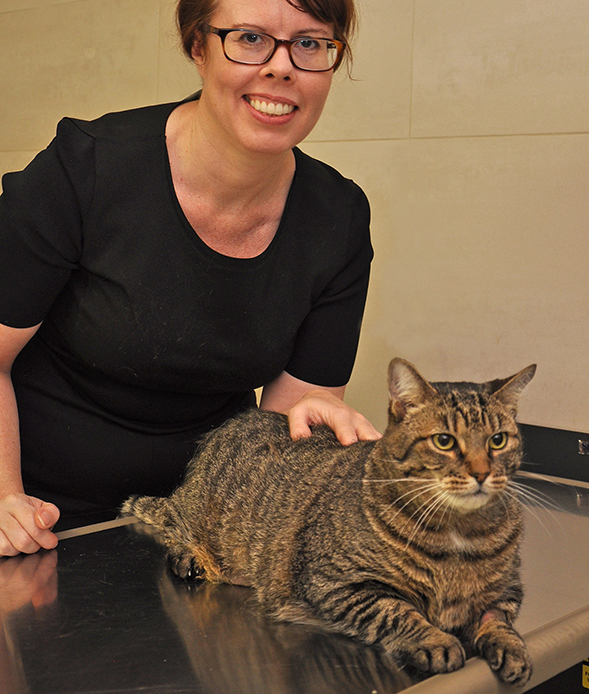
Pancreatitis: Learn the Symptoms to Help Protect Your Dogs and Cats ASPCA BLOG Thursday, July 9, 2015 - 9:45am
Kristin K. knew something was wrong early one recent Monday when her 11-year-old adopted tabby, Sonny, skipped breakfast and lay on the floor.
“He’s the self-appointed sheriff in our household, always policing the other two cats,” Kristin says. “And he’s normally very active in the morning and runs to his food bowl. So I had a bad feeling.”
Kristin immediately took Sonny to the ASPCA Animal Hospital, where he was examined by veterinarian Dr. Mary St. Martin.
“His symptoms were subtle, but he had a tense abdomen and a fever,” recalls Dr. St. Martin, who diagnosed Sonny with acute pancreatitis based on his blood work and an ultrasound that revealed changes in and around his pancreas.
Pancreatitis is commonly treated by veterinarians at the ASPCA, with supportive care such as intravenous fluids, pain medication and anti-nausea medications to control vomiting.
After three nights and four days of treatment at the Hospital, Sonny went home, where Kristin reports “the self-appointed sheriff is back at work.”
As it does in humans, the pancreas, a V-shaped organ located near the stomach and the small intestine, produces insulin, which helps metabolize sugar in the body and is necessary for the digestion of nutrients by producing enzymes which promote the digestion and absorption of fats.
While it’s not always easy to pinpoint the cause, pancreatitis in cats and dogs can be triggered by certain infections or diseases, metabolic disorders, medications and abdominal surgery or trauma. In cats, pancreatitis is often associated with inflammatory liver or intestinal disease, also known as triaditis. In dogs, acute pancreatitis can be caused by dietary indiscretions. Obese and overweight pets, and those fed diets high in fat, are also at risk.
Sonny had never before suffered from pancreatitis but displayed the classic symptoms, including dehydration and decreased appetite. Dogs more commonly develop vomiting and abdominal pain. Both dogs and cats can also develop jaundice associated with pancreatitis.
There are also possible associations between pancreatitis (especially chronic pancreatitis) and diabetes. Sonny’s blood sugar was high and he is being monitored for the possible development of diabetes, which could require treatment with insulin injections.
“It isn't easy to prevent pancreatitis, but diet changes and keeping pets at ideal body weight may help,” says Dr. St. Martin.


No comments:
Post a Comment